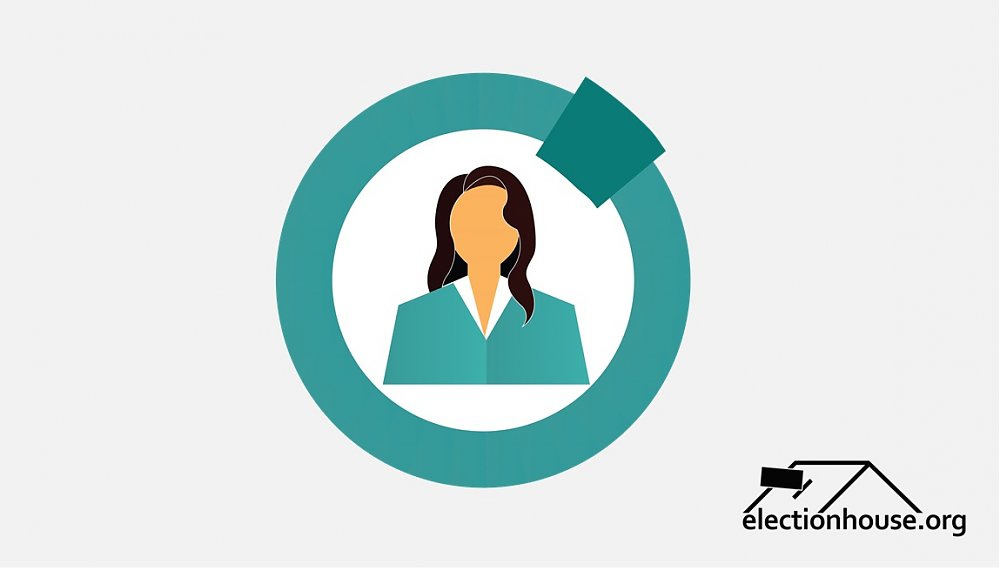The Supreme Court (MA) granted the request for a judicial review of the nomination of at least 30% of women in DPR/DPRD submitted by the Community Concerned about Women's Representation (MPKP). The binding nature of the Supreme Court's decision must be followed up by the General Election Commission's commitment by revising Article 8 paragraph (2) of KPU Regulation Number 10 of 2023. This decision must also awaken the KPU and the Election Supervisory Body (Bawaslu) to commit to the mandate of wider representation of women according to the hierarchy of laws and regulations.
"We first applaud the victory of the people in fighting for women's representation because the Supreme Court approved the material test submitted by the Coalition of Communities Concerned with Women's Representation," said Executive Director of the Center for Political Science Studies at the University of Indonesia (Puskapol UI), Hurriyah, in the discussion "2024 Election: Want to Bring It, Where is Our Democracy?" at the Faculty of Social and Political Sciences, Gajah Mada University (Fisipol UGM), Sleman Special Region of Yogyakarta (30/8), which was broadcast live via the UGM Fisipol Youtube channel.
According to Hurriyah, there have been various efforts to prevent women's representation from reaching at least 30%. Finally, at the DPR/DPRD nomination stage, the 2024 election is carried out by the KPU through PKPU 10/2023. Article 8 paragraph (2) of this regulation provides for rounding down the percentage of women in the list of DPR or DPRD candidates in each electoral district.
In the same channel (31/8), the Executive Director of the Association for Elections and Democracy (Perludem), Khoirunnisa Nur Agustyati, explained that the 2024 Election uses the same election law as the 2019 Election. The hope is that Law 7/2017 concerning General Elections will not be revised and that the 2024 election can be better prepared through technical regulations made by the KPU and Bawaslu.
The chairman of the DIY KPU, Hamdan Kurniawan, conveyed his autocriticism of the central-level KPU. The KPU's authority to make regulations should guarantee the quality of democracy through an open and participatory process. Hamdan assessed that in the 2024 elections, the regulations regarding nominations and campaigns, including regarding women's representation, were not open and participatory enough.
"Even though in making regulations, the KPU must involve various stakeholder actors, Not only election participants but also election observer NGOs. "This openness process is not only inviting, but there is a guarantee of follow-up on community input," said Hamdan.
Representation of women among election organizers
Previously, the women's organization Kalyanamitra and the Indonesian Women's Coalition (KPI) together with the Asian Muslim Action Network (AMAN) Indonesia held an open mic entitled "Women's Voices for the 2024 Election: Reinforcing the State's Commitment to Equal, Fair, and Inclusive Elections" online (28/8). The aim of this activity is to remind election organizers to comply with statutory regulations regarding women's representation of at least 30%. Chairperson of Kalyanamitra, Listyowati, explained that this activity in the context of the 2024 elections is part of the consolidation of the women's and pro-democracy movements as well as the younger generation in creating a democratic party that is equal, inclusive, and democratic.
KPI Secretary General Mike Verawati said that the 2024 election will experience a narrowing of space for women's affirmation. Apart from the minimum 30% candidacy of women in each electoral district, which is violated by the KPU and almost all political parties, the representation of women in the membership of election organizers is also ignored. In fact, the constitution and election law guarantee women's representation through affirmative provisions.
"We know that, up to the announcement made by Bawaslu RI, the number of women sitting in election management is decreasing. In fact, in various provinces and districts/cities, the membership of election organizers is all men," said Mike.
An academician at the Faculty of Law, University of Indonesia, Titi Anggraini, said she was sad about the narrowing of space for women's affirmation in the 2024 elections caused by election management institutions. In fact, this institution is the fruit of the Reformation. In the selection of KPU/Bawaslu members, women are not a priority.
"In my opinion, it is important that we strive for legal activism. "We must look at all opportunities to take legal action against various violations of the law (provisions on women's representation)," said Titi.
Netgrit Senior Researcher Hadar Nafis Gumay agrees with Titi that the election organizer's policy of ignoring women's representation is important and should be followed up through justice. With this, women's participation of at least 30% in the 2024 elections can be more guaranteed.
"There is a reporting channel for election organizer members at the DKPP (Election Organizer Honorary Council), and there is a judicial review to the Supreme Court. Let's control all of this," Hadar said.
Chair of the National Human Rights Commission (Komnas HAM), Atnike Nova Sigiro, said that elections are part of democracy. This means that democratic values such as equality and freedom that uphold human rights include universality and anti-discrimination, including for women. All of this must be guaranteed in the implementation of elections and the institutions of political parties and parliament.
"We need to ensure that the upcoming elections are conducted in accordance with human rights principles. The state is responsible for this principle, which is also a means to ensure human protection, including women," said Atnike. []











